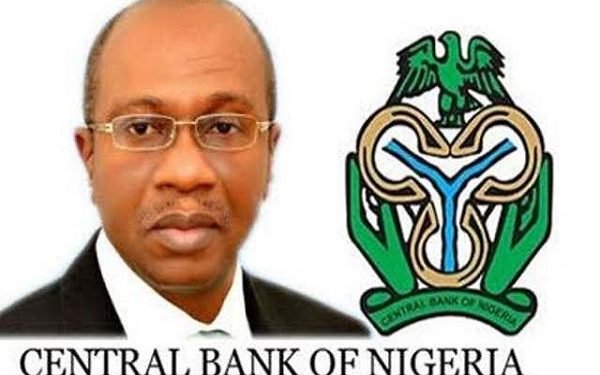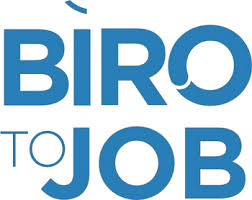CBN Cripples Bureaux De Change (BDCs) DCs For Aiding Graft, Money Laundry

By Nduka Chiejina, Abuja
Alleging massive graft and money laundering, the Central Bank of Nigeria (CBN) will no longer sell foreign exchange to Bureaux De Change (BDCs).
Central Bank Governor Godwin Emefiele said on Tuesday: “BDCs have turned themselves into agents that facilitate graft and corrupt activities of people who seek to conduct illicit funds flow and money laundering in Nigeria and we will go after all of them”.
Emefiele spoke in Abuja at the end of the Monetary Policy Committee (MPC) meeting.
The CBN, he said, had resolved that it “will no longer process or issue new licenses for BDC operations in the country. This stoppage extends to all licenses being currently processed, regardless of the stage of that processing”.
Emefiele also announced that the CBN “will henceforth, channel significant portion of its weekly allocations currently meant for BDCs to commercial banks to meet legitimate forex demand for ordinary Nigerians and businesses, whether for small scale imports, medical bills, educational expenditure, personal and business travels or any other legitimate needs as prescribed by the CBN’s Foreign Exchange Manual”.
He ordered all commercial banks in the country to “with immediate effect, create a dedicated teller point in designated branches for sale and disbursement of foreign exchange to customers, who desire FX for legitimate purposes”.
Emefiele insisted that “once a customer provides the basic documentation to purchase foreign exchange, all banks must immediately either on demand or within a stipulated timeframe, sell foreign exchange to the customer.
“Any customer who does not receive foreign exchange along these lines must report this to their bank and where they are unsatisfied with the resolution, they are required, indeed they must contact the CBN on our toll-free line number 07002255226 or email cpd@cbn.gov.ng to lodge a complaint with details of the bank transaction”.
The BDCs are licensed by the CBN to sale foreign exchange to end users and comply with anti-money laundering regulations.
The records of the BDCs are expected to be made readily available to the CBN examiners as and when requested including carrying out customer due diligence, corporate governance and tax returns.
The operators ensure that forex gets to retail end of the market for travelers needing personal or business travel allowances, parents or guardians seeking dollars to pay for their children’s schools fees abroad or people that need dollars to pay medical bills abroad. At the last count, the annual transaction turnover for the 5,300 CBN -licenced BDCs stood at N1 trillion.
The CBN governor said the BDCs have deviated from the original objective for which they were established. Instead, their activities have resulted in unintended and unfortunate consequences for the country.
“There is an “avalanche of rent-seeking operators who are only interested in widening margins and profits from the foreign exchange market, regardless of prevailing rates in the market.
“The gradual dollarisation of the Nigerian economy with attendant adverse consequences on the conduct of the Monetary policy and subtle subversion of the cashless policy initiative of the CBN.
“The CBN is also not happy about the prevailing ownership of several BDCs by the same promoters in order to illegally procure foreign exchange multiple times from the CBN; numerous and repeated financing of unauthorized transactions with foreign exchange procured the CBN.
“The CBN now has evidence that several international organisations, embassies, regrettably and development finance institutions operating in the country, patronise BDCs through illegal forex dealers to fund their local operations in further and flagrant contravention of our foreign exchange laws in Nigeria.
“CBN examiners are currently looking into the books. We have reports that indict development finance institutions, embassies, international finance organisations, who, instead of selling their foreign exchange into the recognised Investors & Exporters Window have resorted to operating with illegal forex dealers in flagrant contravention of our laws”.
He warned that any bank found colluding with foreign organisations to undermine the forex policy will be dealt with “ruthlessly”.
Emefiele said: “We will deal ruthlessly with the Nigerian banks who have acted as collaborators with these illegal forex dealers because they have allowed their banking and payment system infrastructure to be used to facilitate these illegal dealing in foreign exchange.
“As for those foreign organisations involved, we will report them to their regulators; we will write to seek their understanding and that they must desist if they seek to operate in Nigeria; they must go through the right channels through which they must procure either foreign exchange or procure Naira for their domestic operations,” he said.
According to him, the unintended outcomes have placed an unsustainable and enormous financial burden on the CBN and its limited forex, adding that the CBN was selling $20,000 to each of the over 5,500 BDCs per week.
He said: “This amount translates to about $110 million per week and about $5.72 billion per year. This is a scarce resource and the Nigerian Central Bank, the Government cannot continue to allow this unwholesome practice continue in Nigeria.
“The losses suffered by the country as a huge hemorrhage on our scarce foreign exchange reserves and cannot continue because we are also concerned that BDCs have become a conduit for illicit financial flows, indeed the facts abound that BDCs have turned themselves into agents that facilitate graft and corrupt activities of people who seek to conduct illicit funds flow and money laundering in Nigeria and we will go after all of them.”
The decision to stop funding BDCs, Emefiele said, has the full support of the political authorities and the MPC.
Emefiele said: “Our leaders, who constitute the political authorities, have raised concerns about the modus operandi of the BDC operators in Nigeria. We did our best to defend it to see to it that they play certain roles in the economy, at this stage we can no longer continue.
“The political authorities themselves have long sort that this should stop but now that we have reached the point where we can no longer continue because of the illegal activities about graft particularly corrupt tendencies being perpetrated by players in the BDC sector it must stop and we will stop henceforth.
“The CBN is currently so disappointed with sharp practices that are happening there (BDC sector). What happened in that market as insignificant as the volume is, they’re all perpetuating graft, corruption, exchange of bribe money instead of taking your Naira in big bags you choose to collect dollar cash in small bags we will not facilitate that for you again. It is not what a central Bank should support.”
In arriving at the decision to put a stop to funding BDCs, Emefiele said: “We saw daily turnover in our foreign exchange markets fall from almost 300 million per day, in the first quarter of 2020 to about $40 million per day at the height of the pandemic. In the light of various efforts and initiatives by the CBN, we have seen these numbers rise to as high as $150 million per day in July 2020.
“Despite the pressure mentioned, the demand for forex has not abated, thereby putting additional pressure on our reserves. To avoid further depletion of the reserves, the CBN took several countervailing actions including prioritization for import of critical materials and providing ample supply for businesses and personal travelers.
“While these have been turbulent times, we are happy to note that these measures have been positively decisive in helping us maintain a healthy level of reserve despite these exogenous difficulties.”
– The Nation








